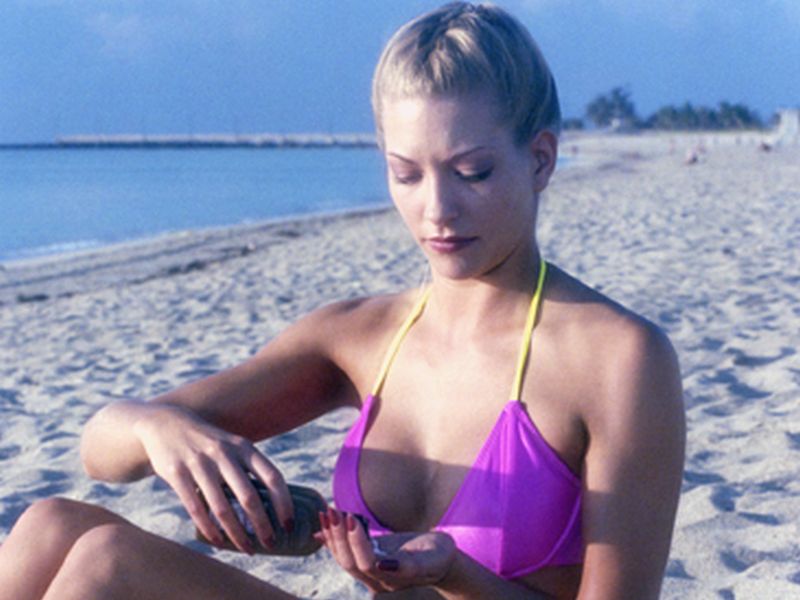Manténgase sano!

- Posted April 11, 2019
Sunscreen's Secret Bonus: It Could Help Keep You Cool
Sunscreen may do double duty when you're outside on a summer day, keeping you cool as it protects your skin from the sun's harmful rays.
New research suggests how: When unprotected skin is exposed to the sun's ultraviolet (UV) rays, skin cells typically see a drop in levels of nitric oxide. This compound helps the skin's small blood vessels to relax and widen.
Reduced nitric oxide results in a reduction in blood flow to the skin, which can throw a person's body temperature out of whack.
But applying SPF-50 sunscreen can halt that chain of events, the researchers said.
"When sunscreen was applied to the skin before ultraviolet light exposure during the current study, it completely protected against the negative effects of ultraviolet light on nitric oxide and skin blood vessel function," explained study author S. Tony Wolf. He is a Ph.D. candidate in exercise physiology and a predoctoral research fellow at the Center for Healthy Aging at Penn State University.
Wolf and his colleagues presented their findings this week at a meeting of the American Physiological Society, in Orlando, Fla. Such research is considered preliminary until published in a peer-reviewed journal.
To test how well sunscreen protects against heat stress, investigators enlisted 13 healthy adults aged 24 and older. All were described as having light to medium skin tones.
For the study, total UV exposure was equivalent to an hour's worth of UV on a sunny day. In turn, each participant's left forearm was randomly exposed to UV either without sunscreen protection or with SPF-50 sunscreen protection or without sunscreen but covered with a simulated amount of sweat moisture.
Wolf noted that SPF-50 sunscreen offers an "adequate" level of maximum sun protection, with stronger sunscreens unlikely to offer significantly greater safety.
Right forearms were not exposed to any amount of UV, and were used as a point of comparison.
In the end, the research team found that drops in both nitric oxide levels and blood flow to the skin were only seen when skin was exposed to UV rays without either sunscreen or simulated sweat.
By contrast, both sunscreen and simulated sweat appeared to prevent any drop in either. But sunscreen went a step further, by actually appearing to increase nitric oxide levels and blood flow.
"For this reason," said Wolf, "people who experience repeated and/or prolonged exposure to the sun -- those who work or exercise outdoors, tourists, etc. -- should consider using sunscreen, not only to protect against skin cancer, but also against reductions in skin vascular function."
Dao Ho is chief of physiology in the department of clinical investigation at the Tripler Army Medical Center in Hawaii.
Ho was not involved in the study. But she said that "it is always a good idea to use sunscreen while you're outside to prevent skin damage from the UV [radiation] that could lead to cancer, premature aging, and now vascular damage."
Ho suggested that if the findings hold up, "the ability of sunscreen to prevent the reduction in nitric oxide in the skin caused by UV rays is definitely an added bonus offered by sunscreen."
However, she cautioned that "more work needs to be done to understand how much of an impact this can have on a person's skin health, as well as overall health."
More information
The U.S. Food and Drug Administration has more on staying safe in the sun.
SOURCES: S. Tony Wolf, Ph.D. candidate, exercise physiology, and predoctoral research fellow, Center for Healthy Aging, Penn State University, University Park; Dao Ho, Ph.D., chief, physiology, department of clinical investigation, Tripler Army Medical Center, Hawaii; April 8, 2019, presentation, American Physiological Society meeting, Orlando, Fla.
